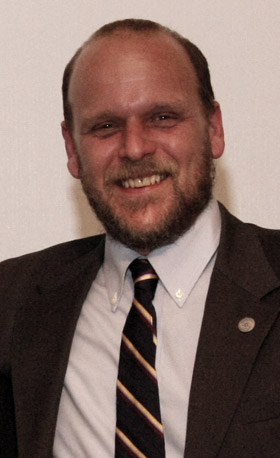Sebastian Bellagamba (Internet Society): “Internet requires the participation of multiple stakeholders”
28/12/2012

Sebastian Bellagamba, Regional Bureau Director for Latin America and the Caribbean of the Internet Society (ISOC), actively participated in the debates that took place in Dubai, where the international community discussed updating new international telecommunications treaties of the International Telecommunication Union (ITU).
During these sessions, certain governments attempted to modify key aspects of the treaty to include the Internet within the scope of telecommunications in general and thus gain control over the World Wide Web. The initiative was neutralized, but not before generating strong resistance from all actors involved in Internet development.
On his return to Montevideo, home to ISOC’s regional office, Sebastian Bellagamba spoke with Lacnic News about the Dubai meeting.
What is the Internet Society’s position regarding the World Conference on International Telecommunications (WCIT)?
The Internet Society believes that the International Telecommunication Regulations should contain high-level principles, and that any revision should focus on the aspects that have clearly worked in the field of global communications: competition, privatization, and transparent and independent regulation. We sincerely hope that revisions will not interfere with the continuous evolution and innovation of telecommunications networks and the Internet. This meeting is an opportunity to build on the 1988 International Telecommunications Regulations and to apply the lessons learned since then to further enhance access to international telecommunications infrastructure.
There is still work to be done to reduce connectivity costs and extend the benefits of communications to everyone. In this sense, many lessons we can learned from these past 25 years in terms of policy. The notions of competition, regulatory independence, and participation of all stakeholders in a transparent governance model would be an excellent starting point for any treaty revision. Moreover, the ITU should uphold the commitment to use open and voluntary international standards in support of global interoperability.
Do you consider it appropriate for governments to have a direct impact on Internet governance bodies?
This conference provides another opportunity for the various actors involved in Internet management and development to learn how to collaborate as, due to the fact that it is by nature a collaborative network, the Internet necessarily requires the participation of multiple stakeholders in its processes. Every stakeholder should be relevant, including governments.
Has the net neutrality model been one of the key reasons behind the growth of Information Technology?
We believe it has, especially as regards the use of open standards and protocols. When we use the term “open” we are actually referring to two qualities: open in the sense that protocol and standard specifications are public and therefore known to all, and open because we don’t need to pay to use them. We should add that the process used to develop these standards is also open: anyone interested in doing so can participate.
Is it necessary to create new agencies to improve Internet access around the world?
I don’t think it’s necessary to create new agencies, but rather to continue furthering existing programs and creating initiatives that will lead to universal Internet access.